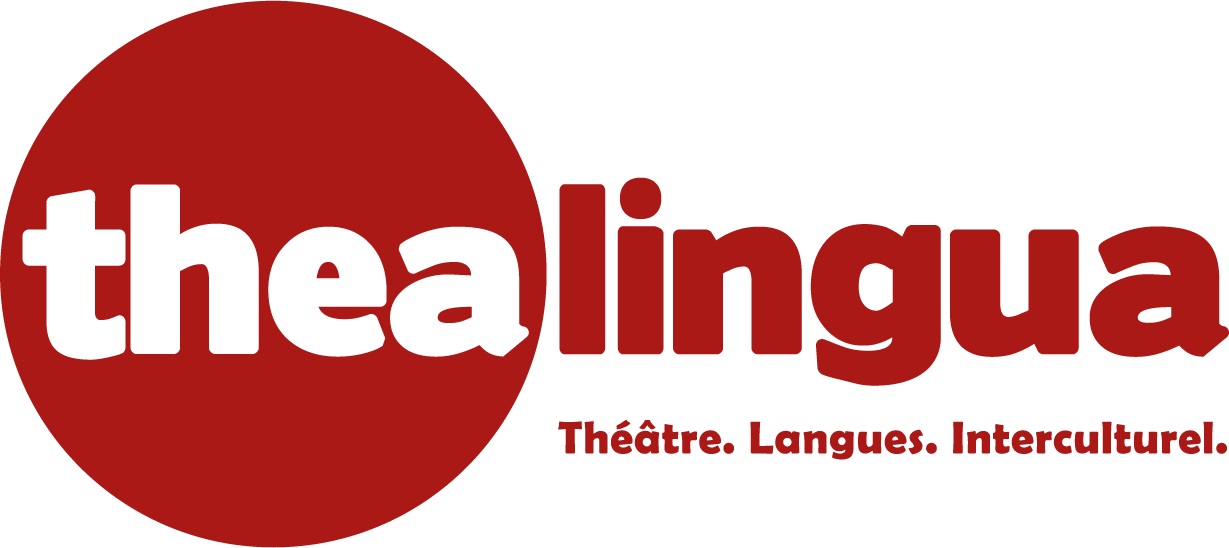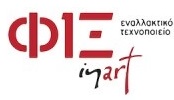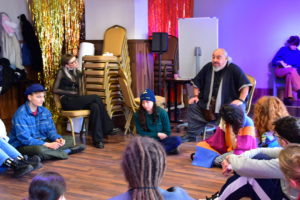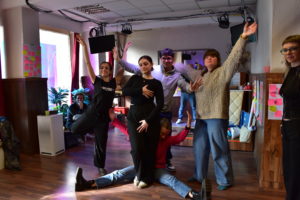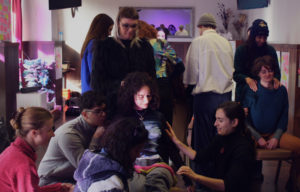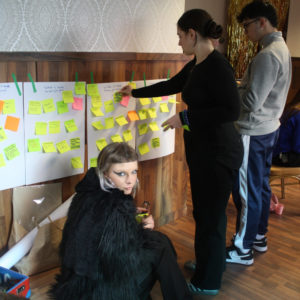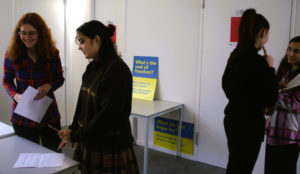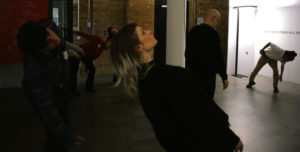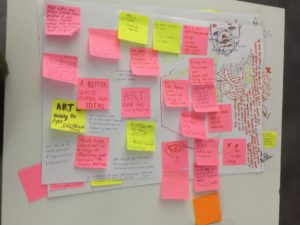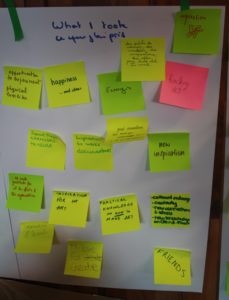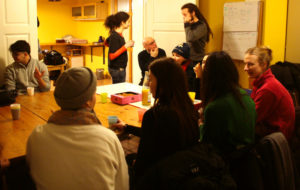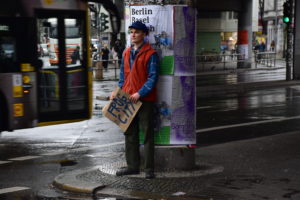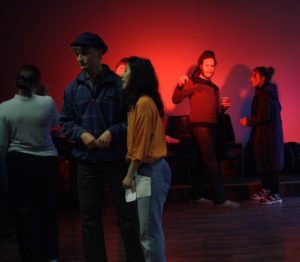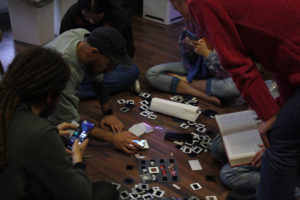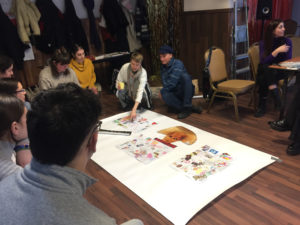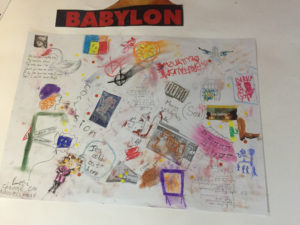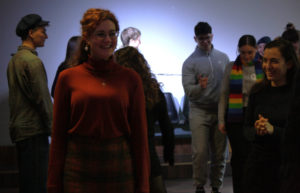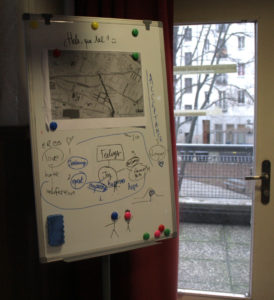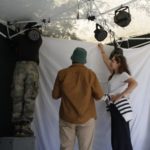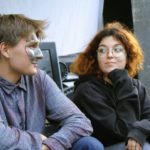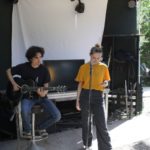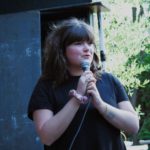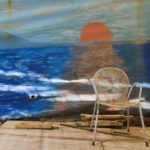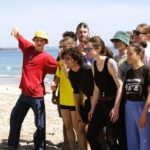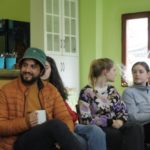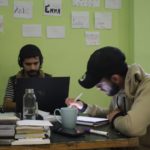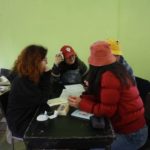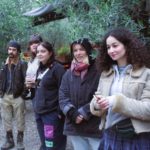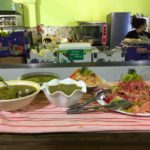A project supported by Erasmus + and OFAJ, Artivists, CAP2TRANSITION is aimed at young people aged between 18 and 30 to help them set up local artistic projects around the themes of transition.
Based on the concept of neighbourhood, the projects supported aim to raise awareness of the issues involved in the transition and to seek solutions based on collective intelligence, citizen involvement and the sharing of experience.
A series of webinars, meetings in Germany, Greece and France, the setting up of creative projects where participants explore and exchange artistic practices and methods of activism. This is an opportunity for Thealingua to highlight the method of learning foreign languages through theatre and to offer it to the young participants.
- Building a training and discussion programme around the concepts of transitions, and proposing the method to be used during this hybrid programme, which will take place both online, with a series of webinars, and face-to-face during three discussion sessions and training activities.
- Helping young people to build projects that reflect their vision of the world through art and activism.
- Developing social links through creativity, collective action and interculturality
- To unite around the project a community of young participants who combine art and activism to initiate positive changes in their environment and neighbourhood.
- Initiating meetings, networks and professional exchanges.
- Encouraging children to learn how to use their bodies through practical activities (theatre, dance, singing, sport, etc.)
- Bringing people together by mastering their expressive tools
- Set up creative activities based on project teaching.
To this end, Damien Poinsard and Anaïs Caillaud, Thealinguists and theatre teachers, will be offering theatre workshops during Phase 1, in Berlin, dedicated to building awareness of the body, the shared space and the group, in order to break down each barrier one by one: language, fear of the unknown, anxiety about the first artistic interactions, each person’s skills? To anchor the participants in their new shared space and in a new approach to others.
The languages involved in the project are European languages such as French, English, German and Greek. We involve young people from France, Germany and Greece.
Taking a cross-disciplinary approach to activism and artistic techniques, participants are invited to discover and discover themselves through workshops led by professionals: upcycling and photography, cinematography, sensitive cartography, theatre, etc. These are ways of exploring one’s convictions and sensitivities, getting in tune with a group in order to move forward together and, finally, creating works that can change those who make them and those who witness them.
In the context of the project, artivism is intended to be local, because the artistic approach must be accompanied by a transitional approach, the creation of a community (‘nachbarschaft’ in German, a ‘neighbourhood’ that encompasses not just the residential aspect but the whole of cultural, political, economic and social life) or an initiative that creates a community: recycling, neighbourhood workshops, a collective canteen, organisation of a collection of unsold goods, a micro-library, etc.
The principles of Permaculture (see “Permaculture Humaine”, Bernard Alonso and Cécile Guiochon, 2016) and the “Transition Cities” movement initiated by Rob Hopkins in the United Kingdom are the major inspirations for the project: local development through the creation (or re-creation) of communities involving both neighbours and local economic, political and cultural bodies, with the aim of creating resilient societies. The contribution of the Human Permaculture concept puts the human approach back at the heart of society and puts the social question, listening to others and being kind to them, back at the heart of social processes and everyday politics.
Art and imagination are essential to support transition processes, to democratise the impetus to create, reform and invent new ways of living. Contrary to popular belief, art that is committed does not preach to the convinced, but pulls them out of their comfort zone and makes them aware of the changes that need to be made and of their capacity to act. As part of this dynamic of transition, the proposed artistic process invites the public to set themselves in motion, from a state of affairs to be left behind to a desirable elsewhere. In short, a work of art misses the opportunity to change a life if those who witness it find no outlet for their conclusions, no construction in which to reinvest their new conviction.
So, bringing the community together around artistic proposals to imagine together the paths of transition, new roads opened up by an aesthetic shock, a new way of seeing, a new way of seeing.
bombe à graines éclate et c’est un jardin qui fleurit.


